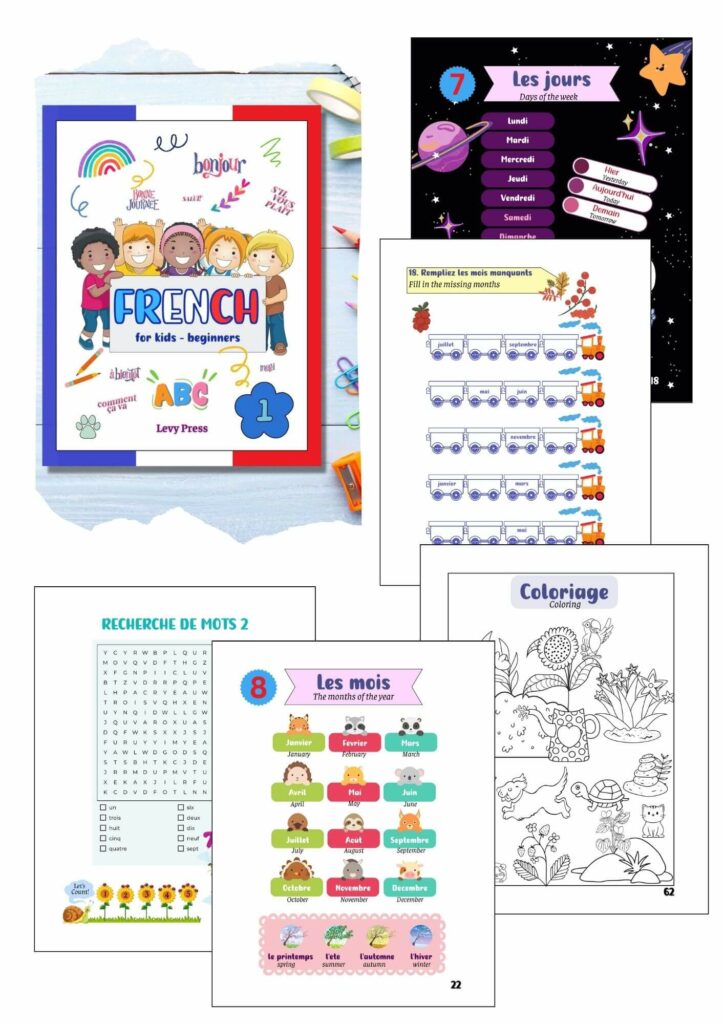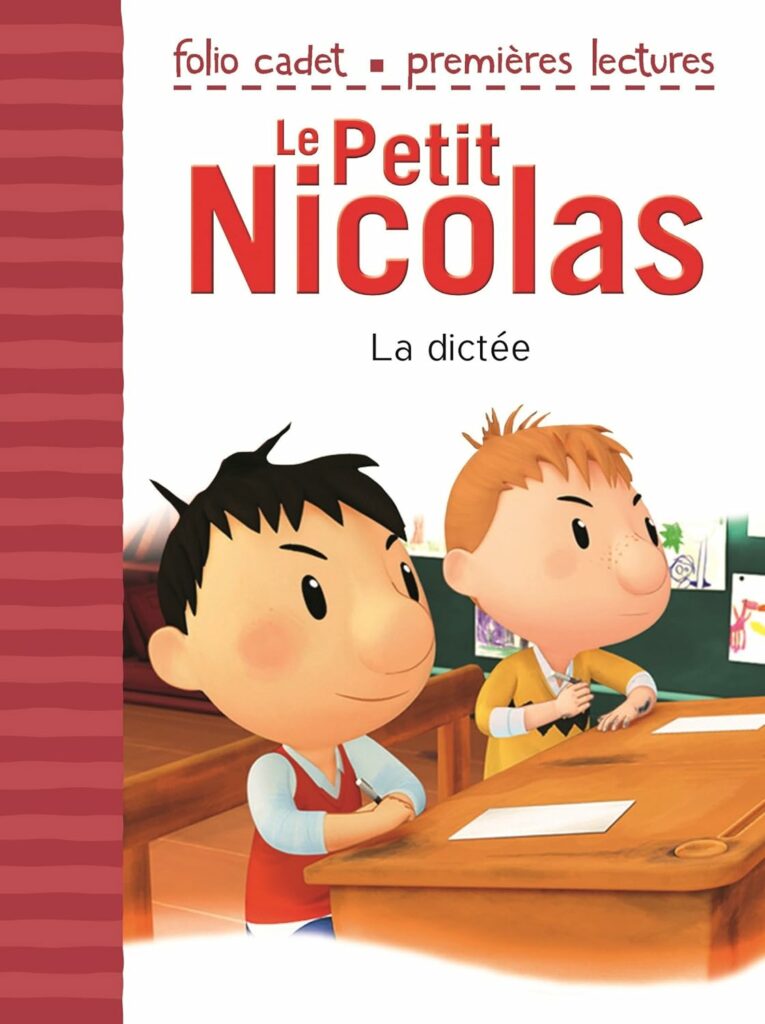
French language learning has become increasingly important in our globalized world. Whether you’re an aspiring traveler, a student looking to enhance your academic profile, or a professional seeking career advancement opportunities, acquiring French language skills opens doors to new experiences and opportunities. However, the effectiveness of your language learning journey greatly depends on the resources you choose. In this ultimate guide, we will explore the best French language learning resources available, including traditional methods and digital platforms. By understanding the options and evaluating their advantages, you can make informed decisions to accelerate your French language acquisition and achieve fluency.
Note: Affiliate links may be used in this page. I may receive a small commission at no extra cost to you if you use my affiliate link. Full disclosure policy here.

The importance of French language learning and the significance of reliable resources
The growing demand for French language skills
Learning French has become more popular than ever, and it’s not just because of our love for croissants and berets. French is a global language spoken by millions of people around the world. It’s the official language of 29 countries and is widely used in international organizations like the United Nations and the European Union. Whether you’re a language enthusiast, a student planning to study abroad, or a professional looking to boost your career prospects, learning French opens up a world of opportunities.
The role of reliable resources in effective language learning
Now, before you dive into the world of French language learning, it’s important to have reliable resources by your side. Imagine trying to learn French from an outdated textbook or relying solely on a random YouTube channel with questionable pronunciations. Not exactly ideal, right? Reliable resources play a crucial role in effective language learning. They provide structured lessons, interactive exercises, and accurate content to help you build a solid foundation in French. So, let’s explore the best French language learning resources together!
Traditional Methods vs. Digital Resources: A comparative analysis
Pros and cons of traditional classroom learning
Ah, the good old classroom! Traditional classroom learning has its perks. You get face-to-face interaction with a teacher, opportunities for group discussions, and a structured curriculum. Plus, you can’t deny the charm of those dusty textbooks and highlighters. However, it can be time-consuming, inflexible, and sometimes, let’s face it, a bit boring. Not to mention the awkward silence when the teacher asks you to conjugate a verb in front of the whole class. Yikes!
Advantages and disadvantages of digital language learning resources
Enter the digital age of language learning! Digital resources have revolutionized the way we learn languages. With just a few taps on your smartphone, you can access interactive lessons, practice exercises, and even connect with native speakers. It’s flexible, convenient, and tailored to your pace. However, not all digital resources are created equal. Some may lack personalized feedback or struggle to keep your interest. So, choose wisely, my friend.
Top Online Platforms and Apps for French Language Learning
Duolingo: Gamified language learning at your fingertips
If you’ve ever thought learning a language should be as addictive as a mobile game, Duolingo is here to make your dreams come true. This free language learning app combines gamification with bite-sized lessons to keep you engaged and motivated. With its quirky owl mascot and progress tracking, you’ll find yourself saying “just one more lesson” before you know it. But beware, the addictive nature of Duolingo might turn you into a Duolingo evangelist, preaching about verbs and vocabulary to anyone who will listen.
Babbel: Interactive lessons tailored to your proficiency level
Babbel is a popular language learning platform that offers interactive lessons tailored to your proficiency level. From grammar essentials to practical conversational skills, Babbel has got you covered. With its speech recognition technology, you can practice your pronunciation and feel like a French-speaking superstar in no time. So, if you want to learn French while sipping a café au lait in a cozy corner, Babbel might just be your cup of tea… or coffee.
Rosetta Stone: Immersive and comprehensive language learning software
Looking for a more immersive language learning experience? Say bonjour to Rosetta Stone! This comprehensive language learning software takes you on a virtual journey through the French language. You’ll immerse yourself in real-life scenarios, practice your listening skills, and even get feedback on your accent. It’s like having your very own French tutor, minus the awkward small talk. So, if you’re ready to explore the world of French with a touch of sophistication, Rosetta Stone is waiting for you.
Immersive Learning: French language courses and study abroad programs
French language courses: Choosing the right program for your needs
Parlez-vous français? If you’re looking for a more immersive and structured learning experience, enrolling in a French language course might be the way to go. Whether you prefer an intensive course in the heart of Paris or a relaxed program in the picturesque countryside, there are options galore. Just make sure to consider factors like duration, class size, and teaching methods to choose the program that suits your needs. After all, you don’t want to end up stuck in a class where the teacher only speaks French and you’re left wondering if “ou est la bibliothèque?” means “can I go to the bathroom?”
Study abroad programs in French-speaking countries: Enhancing language skills through immersion
Voulez-vous partir en France? Study abroad programs in French-speaking countries offer the ultimate language learning adventure. Immerse yourself in the culture, make local friends, and practice your French skills in real-life situations. Picture yourself strolling along the Seine, ordering a croissant at a street café, and charming the locals with your impeccable accent. It’s not just about learning the language; it’s about living it. So, pack your bags, embrace the joie de vivre, and let the French language become a part of your soul.
Voilà! Armed with this ultimate guide, you’re ready to embark on your French language learning journey. Whether you choose digital resources or immersive experiences, remember to enjoy the process, practice regularly, and never be afraid to unleash your inner French flair. Bonne chance!
Books, Podcasts, and YouTube Channels: Enhancing language skills through multimedia resources
Learning a new language doesn’t have to be limited to textbooks and grammar exercises. With the help of multimedia resources like books, podcasts, and YouTube channels, you can take your French language skills to the next level while having fun along the way.
Must-read books for French language learners
While there is a plethora of language learning books out there, some are more effective and engaging than others. Here are a few must-read books for French language learners:
– “Fluent in French: The Most Complete Study Guide to Learn French” by Frederic Bibard: This comprehensive guide covers all aspects of French language learning, from vocabulary and grammar to cultural insights.
– “The French Lesson: A Novel” by Hallie Rubenhold: Immerse yourself in a fictional story set in France, where you can learn new vocabulary and sentence structures while following along with a captivating plot.
– “French Short Stories for Beginners” by Frederic Bibard: Enhance your reading comprehension skills with this collection of short stories specifically designed for beginner-level learners.
– “English French Bilingual Learning Activity Book” by Levy Press: A book for kids to learn basic French vocabulary and sentences
Engaging and educational French language podcasts
Podcasts are an excellent way to practice your listening skills and immerse yourself in the French language. Here are some engaging and educational podcasts that will make your language learning journey more enjoyable:
– “Coffee Break French”: Hosted by Mark and Pierre-Benoît, this podcast offers structured lessons and useful tips for learners of all levels.
– “Learn French by Podcast”: This podcast provides practical lessons focused on French grammar, vocabulary, and pronunciation, presented in a clear and easy-to-follow format.
– “InnerFrench”: Delve into interesting and thought-provoking topics while improving your French listening skills with this captivating podcast hosted by Hugo.
YouTube channels for interactive French learning and cultural immersion
YouTube is a treasure trove of educational content for French language learners. Here are some YouTube channels that will not only help you learn French but also give you a glimpse into the French culture:
– “Easy French”: Take to the streets of France with this interactive series where native speakers are interviewed about various topics, giving you an authentic learning experience.
– “Learn with Levy Press“: This channel focuses on teaching French for everyone in a natural and authentic way, helping learners sound more like native speakers.
– “Learn French with Vincent”: Vincent’s channel offers a wide range of French lessons, covering grammar topics, vocabulary, and pronunciation, all delivered in a fun and engaging manner.
French Language Learning Communities: Online forums, social media groups, and language exchange platforms
Learning a language becomes even more enjoyable and effective when you have a supportive community of fellow learners and native speakers to interact with. Check out these French language learning communities to connect with others who share your passion for the language:
Online forums for language learners: Sharing knowledge and resources
Online forums provide a platform for language learners to ask questions, share resources, and connect with like-minded individuals. Here are a few popular online forums for French language learners:
– “WordReference”: This forum not only offers answers to language-related questions but also provides a space for learners to discuss various aspects of the French language.
– “Duolingo”: Duolingo’s discussion boards allow learners to seek guidance, share tips, and engage in conversations with other learners as they progress through their language learning journey.
– “Reddit /r/French”: Join this Reddit community to discuss all things French, get language learning advice, and participate in language-related challenges.
Language exchange platforms: Practicing French with native speakers
The best way to improve your speaking skills is by practicing with native speakers. Language exchange platforms provide an opportunity for language learners to connect with native French speakers for language practice. Here are a few popular language exchange platforms:
– “Tandem”: Tandem allows you to find language partners who are native French speakers, offering the chance to practice your French speaking skills through conversations, voice messages, and video calls.
– “HelloTalk”: Connect with native speakers from around the world on HelloTalk and engage in language exchange chats, voice calls, and even video chats, all within a supportive language learning community.
– “italki”: italki offers one-on-one language lessons with native French teachers, giving you the opportunity to practice your speaking skills in a structured and personalized setting.
Social media groups for French language learners: Building a supportive community
Social media platforms provide a space for language learners to connect, share resources, and support each other in their language learning journey. Here are a few French language learning groups worth joining:
– “French Language Learners (Facebook)”: Join this active Facebook group to connect with learners of all levels, share experiences, and ask questions about the French language.
– “French Language Learners (Twitter)”: Engage with the French language learning community on Twitter by following this hashtag and joining conversations with fellow learners.
– “French Language Learners (Instagram)”: Discover new resources, get inspired by fellow learners, and share your progress through posts and stories on Instagram using this hashtag.
French language learning with Chatgpt
earning a new language can be a daunting and challenging task. But who says you can’t have some fun while learning? Enter chatGPT – an advanced AI language model that can help you master the intricacies of the French language. Powered by OpenAI, chatGPT is designed to simulate human-like conversations, making it an engaging and immersive tool for language learners.
Read full article about learning French with Chatgpt here!
Tips and Tricks for Effective French Language Learning
Learning a new language can be a challenging but rewarding experience. Here are some tips and tricks to help you make the most of your French language learning journey:
Setting realistic goals and creating a study plan
It’s essential to set realistic goals and create a study plan that fits your schedule and learning style. Break down your goals into smaller, achievable tasks, and allocate specific times for studying French each day or week.
Incorporating daily French practice into your routine
Consistency is key when learning a language. Try to incorporate French into your daily routine by listening to French music, watching French movies or TV shows, or even labeling objects in your home with their French names.
Utilizing mnemonic techniques and memory aids
To help remember new vocabulary and grammar rules, try using mnemonic techniques and memory aids. Create associations, use visualization techniques, or come up with funny and memorable sentences to help retain information.
Read more tips for learning French here!
In conclusion, the world of French language learning resources is vast and diverse, offering numerous options to suit different learning styles and preferences. By combining traditional methods with digital resources, such as online platforms, apps, books, podcasts, and immersive experiences, you can create a well-rounded approach to mastering the French language. Additionally, engaging with language learning communities and implementing effective study techniques will further enhance your progress. Remember that language acquisition requires dedication, practice, and persistence. With the right resources and a commitment to consistent learning, you can embark on a rewarding journey to fluency in the beautiful French language. Bonne chance! (Good luck!)

English French Bilingual Learning Activity Book – Workbook For Beginners Kids 1
FAQ
Are digital resources as effective as traditional classroom learning for French language acquisition?
Digital resources can be highly effective for learning French, especially when combined with other methods. They offer flexibility, interactive features, and the ability to practice anytime, anywhere. However, some learners may still benefit from the structure and personal interaction provided by traditional classroom learning. Ultimately, it depends on individual learning preferences and goals.
How can I choose the right French language learning platform or app?
When choosing a language learning platform or app, consider factors such as user reviews, features offered (such as vocabulary exercises, interactive lessons, and speech recognition), alignment with your proficiency level, and the ability to track your progress. It can also be helpful to try out free trials or samples before committing to a paid subscription.
How do I make the most of language exchange platforms and social media groups?
Language exchange platforms and social media groups provide opportunities to practice French with native speakers and fellow learners. To make the most of these resources, actively engage in conversations, ask questions, and offer help to others. Consider setting up language exchange sessions or participating in group discussions. Building meaningful connections and consistent practice will greatly enhance your language learning journey.
How long does it take to become fluent in French?
The time it takes to become fluent in French varies depending on several factors, including your prior language learning experience, the amount of time dedicated to studying and practicing, and your immersion in the language. Generally, achieving fluency can take several years of consistent effort. It is important to set realistic goals, be patient, and celebrate each milestone along the way.





